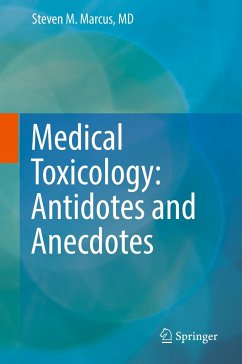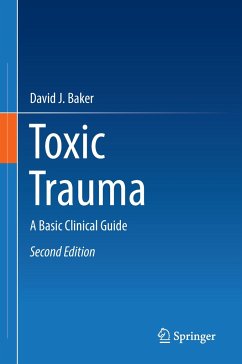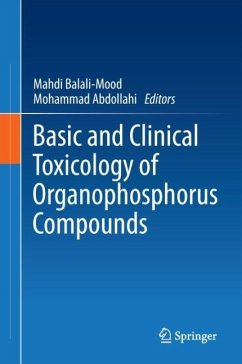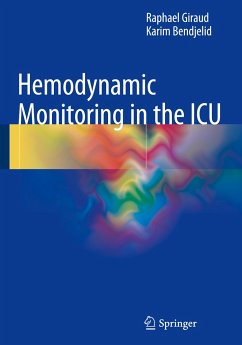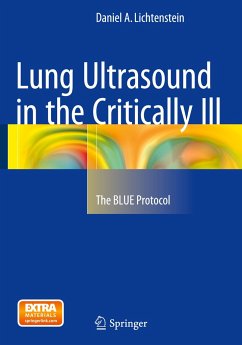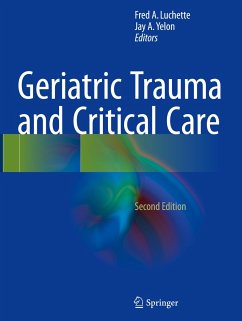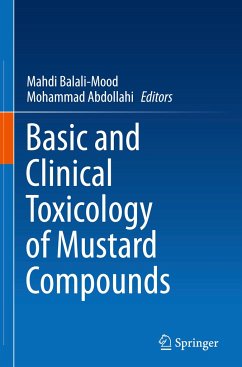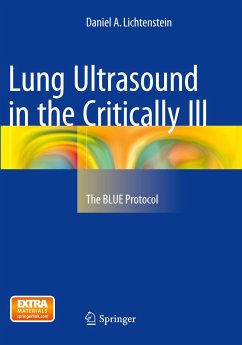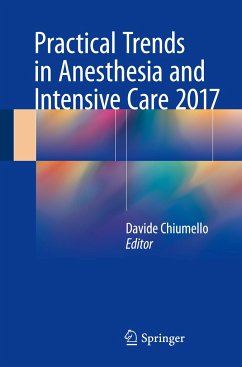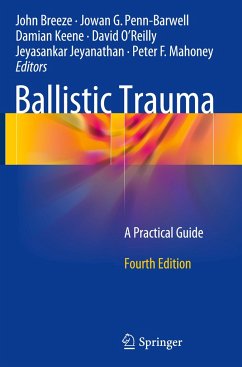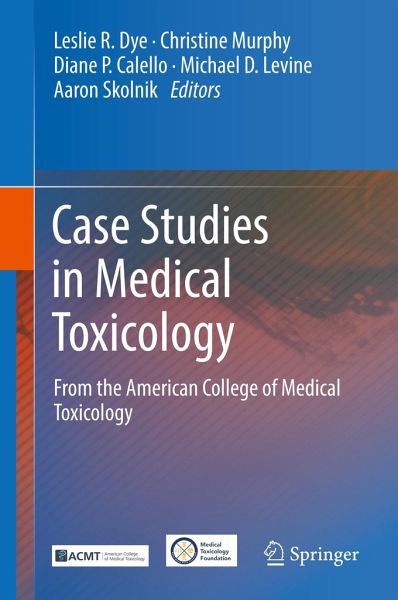
Case Studies in Medical Toxicology
From the American College of Medical Toxicology
Herausgegeben: Dye, Leslie R.; Murphy, Christine; Calello, Diane P.; Levine, Michael D.; Skolnik, Aaron

PAYBACK Punkte
65 °P sammeln!
The ACMT National Case Conference (NCC) is a monthly discussion of novel or interesting cases in medical toxicology. Participation is through online webinar, and the conferences are recorded to allow for review at any time. The cases in this book are taken from recordings of NCC with edits and revisions by contributors and editors to demonstrate educational points. The majority of the case information is from the original recording and represents actual patient presentations. However, some of the details have been changed and fictional information added to enhance the educational value. This v...
The ACMT National Case Conference (NCC) is a monthly discussion of novel or interesting cases in medical toxicology. Participation is through online webinar, and the conferences are recorded to allow for review at any time. The cases in this book are taken from recordings of NCC with edits and revisions by contributors and editors to demonstrate educational points. The majority of the case information is from the original recording and represents actual patient presentations. However, some of the details have been changed and fictional information added to enhance the educational value. This volume covers a broad range of toxicological topics, and specialty guidance is offered at the end of every case to aid non-toxicologists. The dilemmas are applicable to both academic and clinical medicine. A list of relevant questions is also provided for each case. Subjects include common toxicological problems, rare presentations of common problems, common problems with controversial treatments or difficult diagnoses, and rare problems.
Case Studies in Medical Toxicology from the American College of Medical Toxicology is a detailed reference text on specific toxicological issues and also serves as a practical review for those taking board exams. As a result, this volume is an important and necessary resource for medical students, residents, and fellows, as well as primary-care physicians, intensivists, and toxicologistsCase Studies in Medical Toxicology from the American College of Medical Toxicology is a detailed reference text on specific toxicological issues and also serves as a practical review for those taking board exams. As a result, this volume is an important and necessary resource for medical students, residents, and fellows, as well as primary-care physicians, intensivists, and toxicologists. All proceeds from this book will be donated to the Medical Toxicology Foundation.
Case Studies in Medical Toxicology from the American College of Medical Toxicology is a detailed reference text on specific toxicological issues and also serves as a practical review for those taking board exams. As a result, this volume is an important and necessary resource for medical students, residents, and fellows, as well as primary-care physicians, intensivists, and toxicologistsCase Studies in Medical Toxicology from the American College of Medical Toxicology is a detailed reference text on specific toxicological issues and also serves as a practical review for those taking board exams. As a result, this volume is an important and necessary resource for medical students, residents, and fellows, as well as primary-care physicians, intensivists, and toxicologists. All proceeds from this book will be donated to the Medical Toxicology Foundation.





